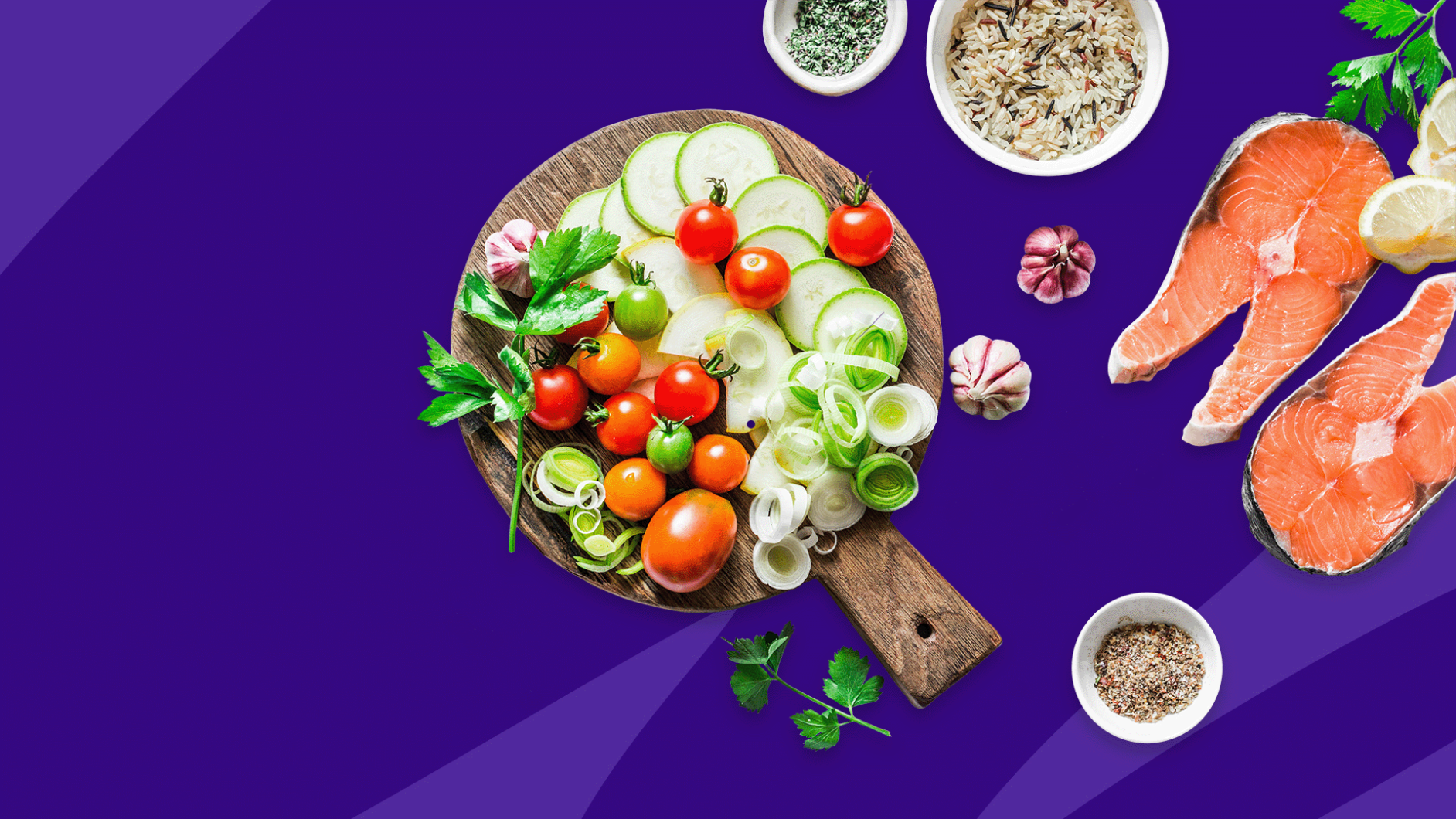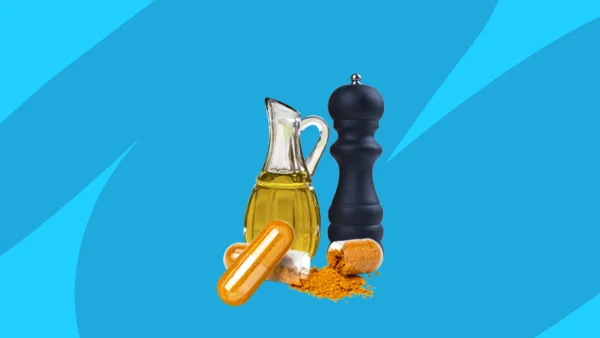Most people have heard of the prostate, but only a few can tell you what it actually does. This small part of the male reproductive system plays a not-so-small role in male fertility by helping to produce semen, and the prostate’s proximity to the bladder means it can also impact urination.
“For a gland the size of a walnut that’s tucked away out of sight and out of mind, a man’s prostate can have its fair share of problems,” says David Samadi, MD, a New York City-based prostate cancer surgeon and urologist.
Prostate cancer affects about 13 out of every 100 American men, and prostate enlargement, or benign prostatic hyperplasia (BPH), is so common it affects about 50% of men between the ages of 51 and 60. BPH can cause frustrating symptoms and more severe complications if left untreated.
Like many other health conditions, Dr. Samadi says the best approach to preventing prostate problems is a regimen of regular exercise, stress management, adequate sleep, avoiding smoking and excessive alcohol consumption, and—of course—eating a healthy diet. But what, exactly, does a healthy prostate diet look like? Here are the five best foods for prostate health (and four you should limit or avoid).
How does diet affect prostate health?
If you’re wondering how what you eat affects a small gland in your reproductive system, the answer is in your cells, says Dan Sperling, MD, medical director of Sperling Prostate Center in Delray Beach, Florida. Eating a typical Western diet of red meat, processed meats, fried foods, high-fat dairy, high-sugar drinks, and prepackaged foods causes chronic inflammation which puts “constant demands on your body’s cells,” according to Dr. Sperling.
This stress on healthy cells, adds Dr. Sperling, can cause mutations that increase your risk of cardiovascular disease and diabetes. These mutations can lead to prostate inflammation, abnormal precancerous prostate cells, and prostate cancer itself.
The good news? Eating anti-inflammatory foods can decrease your risk for prostate problems and, in some cases, reverse some of the damage done before it turns into a bigger problem, says Dr. Sperling.
One of the most common anti-inflammatory diets is the Mediterranean diet, which is not a “diet,” per se, so much as a style of eating. The focus is on fresh fruits and vegetables, whole grains, lean poultry, fish rich in omega-3 fatty acids, and nuts, seeds, and legumes high in monounsaturated and polyunsaturated healthy fats.
According to Kimberley Wiemann, MS, RDN, a Long Island-based dietitian, the research is inconclusive in tying any specific diet to a reduced risk of prostate cancer. Still, some studies have shown that people whose diets were closely aligned with the Mediterranean diet or the DASH diet were less likely to be diagnosed with an aggressive prostate cancer.
“Both of these diets are rich in fresh fruits, vegetables, lean protein, and whole grains,” says Wiemann, who notes that it’s widely accepted that a balanced diet rich in these foods can help reduce the risk of cancers, including prostate cancer.
The Mediterranean and DASH diets aren’t the only anti-inflammatory options out there, but the evidence isn’t quite as strong yet for experts to recommend other diets for prostate health. The keto diet, for example, may contribute to a reduction in insulin. Couple that information with studies showing that insulin reduction may inhibit tumors in different ways, and excitement about the potential for dietary treatment of cancer is naturally growing. There are still ongoing clinical trials looking at this connection.
5 foods to eat
Many types of foods are considered anti-inflammatory. However, a few have been specifically studied for their benefits in treating or preventing prostate cancer and BPH. When in doubt, says Dr. Sperling, think about your heart: “A general rule of thumb: If it’s good for the heart, it’s good for the prostate.”
1. Fatty fish
The Mediterranean diet heavily emphasizes eating fatty or oily fish, a strategy you should definitely adopt if you’re concerned about prostate health.
“Cold-water, fatty fish like salmon, albacore tuna, halibut, sardines, trout, and mackerel…are high in heart-healthy omega-3 fatty acids, which prevent inflammation the way saturated animal fats cause it,” Dr. Samadi says. “These omega-3-rich fish have also been linked to a lower risk of high-grade prostate cancer and a decreased mortality rate of prostate cancer.”
Dr. Samadi recommends eating two to three servings of broiled, baked, or grilled fish each week. Getting your omega-3 servings from one of their natural sources can sometimes pack a bigger punch than when you just take a supplement.
2. Cruciferous vegetables
If you’re not a huge fan of broccoli, cabbage, cauliflower, Brussels sprouts, bok choy, and kale, it’s time to learn to love them. Dr. Samadi says these cruciferous vegetables are exceptionally high in antioxidants, vitamins, minerals, and phytochemicals, which are all excellent for fighting free radicals in the body that can increase the risk of cancers, including in the prostate.
But if you have to pick just one? Make it broccoli.
“Broccoli stands out as a prostate superfood, as it contains a phytochemical called glucoraphanin,” says Dr. Samadi, “[which] research has linked to possibly targeting and preventing cancer cell growth.”
3. Pumpkin seeds
While prostate cancer prevention is important, it’s even more common for men to face an enlarged prostate as they age. Focusing on prostate health can improve symptoms of BPH, which include urinary frequency and urgency, frequent urination during the night (nocturia), and incontinence.
One of the easiest and most risk-free ways to improve BPH is by consuming pumpkin products, especially pumpkin seeds and pumpkin seed oil. Both have been shown to reduce urinary obstruction symptoms in men with BPH. And while a 2021 study suggested pumpkin seed oil wasn’t as effective as the medication Flomax (tamsulosin) in reducing symptoms, it still had health benefits and, importantly, didn’t cause any side effects.
4. Tomatoes
Another unexpected prostate superfood is the humble tomato, which contains a powerful plant-based compound called lycopene. Lycopene not only gives tomatoes their characteristic red color, but it may help reduce the risk of epithelial cancers and specifically prostate cancer, says Wiemann, possibly due to its antioxidant properties.
The only catch? As delicious as fresh tomato wedges are in a summer salad, you’ll get far more lycopene per serving by cooking your tomatoes, such as in a healthy tomato sauce.
5. Green tea
In addition to foods, there is one particular beverage with cancer-fighting power: green tea.
“Green tea has been shown to have protective effects against certain types of cancers, including prostate cancer,” says Wiemann.
Green tea is bursting with hard-to-pronounce but good-for-you compounds like catechin, epicatechin, xanthine derivatives, and epigallocatechin gallate (EGCG), says Dr. Samadi, which
can improve prostate health and might reduce the risk and aggressiveness of prostate cancer.
If you’re not a big tea drinker, there are a few ways to start: Green tea can be served warm or iced, with varying degrees of caffeine to suit your preferences; and if you don’t love the flavor, you can add honey, ginger, and other fresh herbs or spices to make it more palatable.
4 foods to avoid
Dr. Sperling noted that the “typical Western diet” is basically a fast pass to chronic inflammation, including in the prostate. The key foods to avoid for prostate health are ones known to cause inflammation across multiple systems in the body.
1. Processed meat
Processed and prepackaged meat products—including deli meat, bacon, hot dogs, sausage, ham, and canned meats—are high in saturated fat and sodium as well as nitrates, which Wiemann says are associated with a higher risk for developing cancers, including prostate cancer.
In a 2022 study, participants who consumed high amounts of food additive nitrates, especially sodium nitrate, had a higher prostate cancer risk than participants who didn’t.
2. Dairy
Not all dairy contributes to a higher risk of prostate cancer. But dairy products high in saturated fat, like whole milk, ice cream, and cheese, may have a negative impact on prostate health, says Dr. Samadi, who adds that diets high in dairy have also been linked to an increased incidence of BPH.
3. Red meat
Remember, what’s good for your heart is good for your prostate, per Dr. Sperling, and red meat has been on the “reduce or avoid” list for cardiovascular health for a long time. For good reason, too, since eating a lot of it can contribute to hypertension and high cholesterol.
Dr. Sperling says red meat has also been shown to cause inflammatory processes in the prostate, which not only aggravate BPH but could be a precursor to prostate cancer.
If you want to decrease your red meat intake without cutting it out entirely, try avoiding red meat that’s been grilled or cooked well done, says Dr. Samadi: “Part of the reason meat may be associated with an increased risk of prostate cancer could be due to substances formed when it’s grilled, called heterocyclic amines (HCAs).”
HCAs form when meat is exposed to high temperatures, and have been linked to certain types of cancers; instead of grilling meat, try baking, broiling, or cooking it in soups, stews, or chilis.
4. Added sugar
According to Dr. Samadi, sugar fuels cancer cells, so reducing your intake by limiting foods and beverages containing high amounts of sugar—like soda, sweetened tea, cookies, pies, cakes, and other baked goods—could help protect your prostate health.
“Men who avoid drinking sugary beverages are doing a favor to their prostate, as reduced sugar consumption can lessen symptoms and improve the prostate health of men with BPH or prostatitis,” says Dr. Samadi.
And don’t forget to consider your carbs: products made with refined carbohydrates are often higher in sugar than ones made with whole grains, so opt for brown rice, whole wheat bread, and oats, barley, or quinoa whenever possible.
Other treatment options for good prostate health
Of course, dietary changes aren’t the only thing that can improve prostate health. The best treatment for prostate issues is a combination of strategies for overall health that may include additional lifestyle changes, medication, or supplements.
Lifestyle changes
In addition to eating healthy, it’s important to:
- Maintain a healthy weight
- Exercise regularly
- Drink plenty of water daily
- Consider getting tested for prostate cancer as you age. “As a prostate cancer surgeon, I strongly recommend prostate cancer screening beginning at age 40 for all men,” Dr. Samadi says. “You can take a prostate-specific antigen (PSA) blood test at your doctor’s office and know the results within a day.”
- Learn the symptoms of prostate cancer and other prostate problems.
The sooner prostate cancer is found, the earlier treatment or active surveillance can begin. If you’ve been experiencing a frequent urge to urinate, blood in your urine or semen, painful urination, pain or stiffness between your lower back and upper thighs, or painful ejaculation, you should see your healthcare provider as soon as possible.
Medications
If your provider believes you have a problem with your prostate, your provider may prescribe medication to help.
According to Dr. Sperling, research suggests that erectile dysfunction medications like Viagra and Cialis may improve urinary symptoms of BPH, while other studies have demonstrated that metformin use in men with diabetes appears to help reduce mortality from prostate cancer—and combining metformin with statin drugs may strengthen that effect in the setting of diabetes.
However, you should only add or subtract medications to your daily routine under the supervision of a healthcare provider, says Dr. Sperling. There are some known drug interactions with commonly-prescribed medications for prostate health; men taking nitrates are often advised against taking erectile dysfunction drugs like Viagra, for example. And taking metformin with certain other medicines, including Topamax and Diamox, can result in a serious condition called lactic acidosis.
Supplements
Finally, some herbal supplements claim to improve prostate health, including saw palmetto and milk thistle. Wiemann says many of these have very little research to back up any health claims, however, and recommends always checking with your healthcare provider before starting any supplement.











